
Travel
How to stop a gold rush
The new movement building flourishing tourism hubs across Canada – one sustainable example at a time
- 3297 words
- 14 minutes
This article is over 5 years old and may contain outdated information.
History
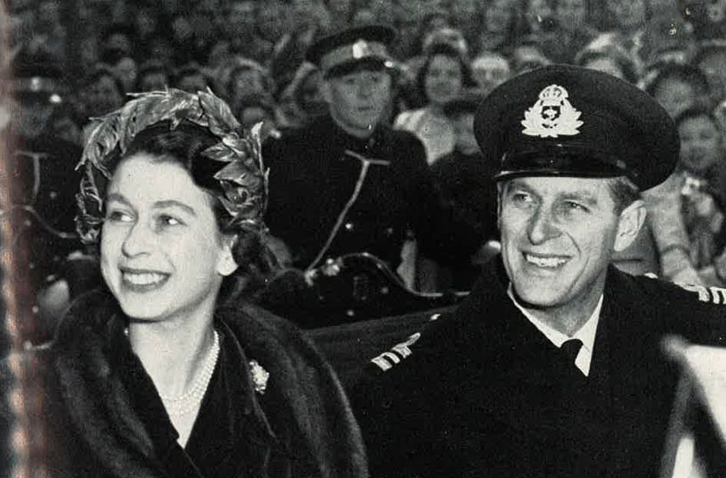
Remember the royal mania across Canada during the summer of 2011? For the Duke and Duchess of Cambridge’s first official tour following their wedding, they spent nine days in Canada.
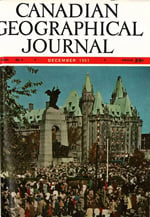
But that wasn’t this commonwealth country’s first experience with royal excitement. In 1951, when the Canadian Geographical Journal cost 35¢, the magazine ran 25 pages dedicated to the five-week visit of Princess Elizabeth and the Duke of Edinburgh. See the pictures here.
The colour cover image, of crowds gathering for the royal couple laying a wreath at the National War Memorial, was taken from the Society’s office window. “Symbolical of the foregathering of Canadians on every appearance of Their Royal Highnesses is this autumn scene,” the description began. (In 2011, Will and Kate also started off their tour by laying a wreath at the same spot.)
Next in the magazine was an excerpt of a national broadcast, entitled “Message of Welcome to Their Royal Highnesses.” It noted the princess was following a tour route her father and mother had travelled in 1939, and how much Canada had changed since then, in terms of its growing population, income and foreign trade.

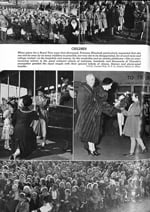
A map traced the royal route, westward to Vancouver Island, eastward to Newfoundland, with a side trip to Washington. The couple travelled by luxury airliner, royal train, HMCS Crusader, HMCS Ontario and car. “Travelling by train, ‘plane, car and ship, they were enabled to maintain a busy schedule in relative comfort, covering an estimated 15,000 miles during their five-week visit,” the magazine wrote. In each place visited, as requested by the princess, she met many children.
The couple also visited parliament, square danced (the prince wore a plaid shirt and blue jeans), toured Trenton Airfield, went to Niagara Falls, watched automotive assembly in Windsor, drove through an oil refinery in Edmonton, watched a staged Calgary Stampede, attended a hockey game and more. At the end of the visit, a farewell from Princess Elizabeth was broadcast from St. John’s in November. The message, which called Canada her “second home,” ended the magazine’s coverage. “Wherever we have been throughout the ten provinces, in your great cities, in your towns, in your villages, and indeed in almost every mile that we have travelled through fields, forests, prairies and mountains,” the princess said, “we have been welcomed with a warmth of heart that has made us feel how truly we belong to Canada.”
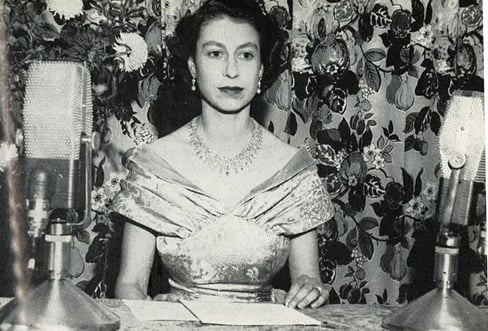
Are you passionate about Canadian geography?
You can support Canadian Geographic in 3 ways:

Travel
The new movement building flourishing tourism hubs across Canada – one sustainable example at a time

Travel
Un nouveau mouvement créateur de pôles touristiques florissants dans tout le Canada – la durabilité, un exemple à la fois
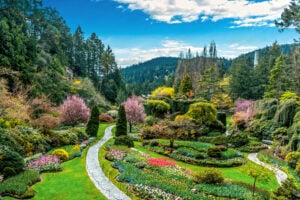
Travel
What tourism’s shift to sustainability, reconciliation and regeneration means for the rest of us
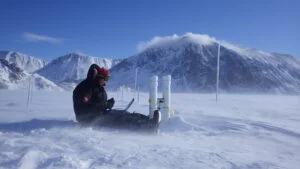
Science & Tech
Celebrating Canadian Innovation Week 2023 by spotlighting the people and organizations designing a better future